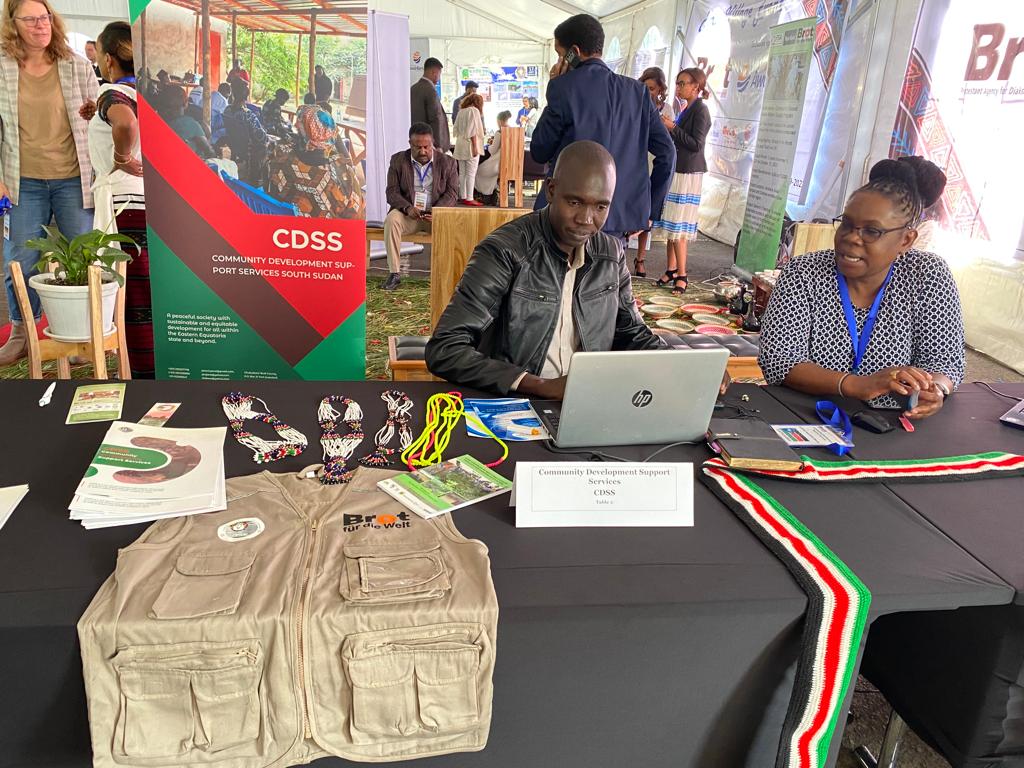CDSS was founded in 1995 by sevenchristians from different denominations in South Sudan. Based in South Sudan CDSS was mandated by the Sudan Relief and Rehabilitation Association (SRRA).CDSS was also registered by the Government of Kenya (GOK) in 2000.
The organization has a constitution and bye-laws which guide and govern it.

CDSS works in partnership with other agencies and believes in participatory development which provides equal opportunities to individuals and communities alike.
The purpose of this document is to set out the strategy for CDSS over the plan period 2014-2017.
It also establishes the nature and focus of the organization from its vision to its programme implementation.
The document has also provided a detailed implementation plan, sets out the Monitoring and Evaluation plan and Resource mobilization plan.
The implementation plan is set out in a logical framework matrix attached to this document as Annex.1.
CDSS will continue with its focus in the areas of food security and Livelihoods, and Peace Building and Conflict Mitigation.
On top of the above CDSS will now venture into the key areas as indicated in the section on strategic direction.
To achieve its vision and through its mission CDSS will focus on the following 4 strategic directions, namely:-
- To diversify sources of funding;
- Enhance accountability to all stakeholders concerning programme results and efficiency.
- Develop and implement flexible and accountable systems , procedures adaptable to the changing environment
- Mainstream community managed disaster risk reduction and conflict sensitivity including gender, and advocacy in all projects.
Through the strategic planning process the following Vision, Mission and Core Values were adopted:
VISION STATEMENT
A peaceful society with sustainable and equitable development for all within the eastern equatoria state and beyond.
MISSION STATEMENT
To champion socio-economic transformation of the marginalized and vulnerable people of eastern equatoria state through building community resilience in partnership with other stakeholders.
CORE VALUES
To compliment the vision and mission the organization has identified the following core values:-
- Stewardship
- Integrity
- Professionalism and excellence
- Teamwork and commitment
- Respect forHuman rights
- God fearing
Finally CDSS has developed a comprehensive implementation matrix elaborating on the strategic direction, objectives, strategies, and activities.The plan has also developed detailed M&E framework.
The document has also identified CDSS’s target groups for socio-economic transformation as illustrated here below:
Vulnerability analysis of CDSS target beneficiaries
| Beneficiary Groups | Vulnerabilities | Coping Mechanisms |
| Vulnerable rural women whose livelihood depends on subsistence agriculture and natural resources, who have few or no assets, and who live daily on less than $1.25 | - Poverty
- Limited or no assets - Lack of voice in decision-making - Limited control over the management of livelihood strategies - Harmful traditional practices and beliefs - Sexual and gender-based violence - Limited formal and non-formal education and basic employment skills (high rate of literacy) - Food insecurity and poor nutrition - Availability and access to health services, particularly sexual and reproductive health - Limited knowledge about reproductive health and family planning resulting in high maternal mortality rates |
- International humanitarian assistance (such as food aid)
- Cultivation of flood and drought resistant crops varieties - Limiting quantity and quality of meals - Selling farm assets, including cattle breeding stock - Remittances - Burning and selling charcoal as an income generating activity - Forced marriage of daughters (which brings in wealth to the family) |
| Most marginalized and economically vulnerable rural male youth (aged 14 -35 years) | - Limited formal and non formal education
- Few marketable skills - High unemployment rates - Susceptibility to cattle raiding and involvement inter-communal figting - Involvement in illegal or anti-social behavior |
- Rural to urban migration
- Stealing cattle & violent and high risk behaviors - Alcohol and drug addiction |
